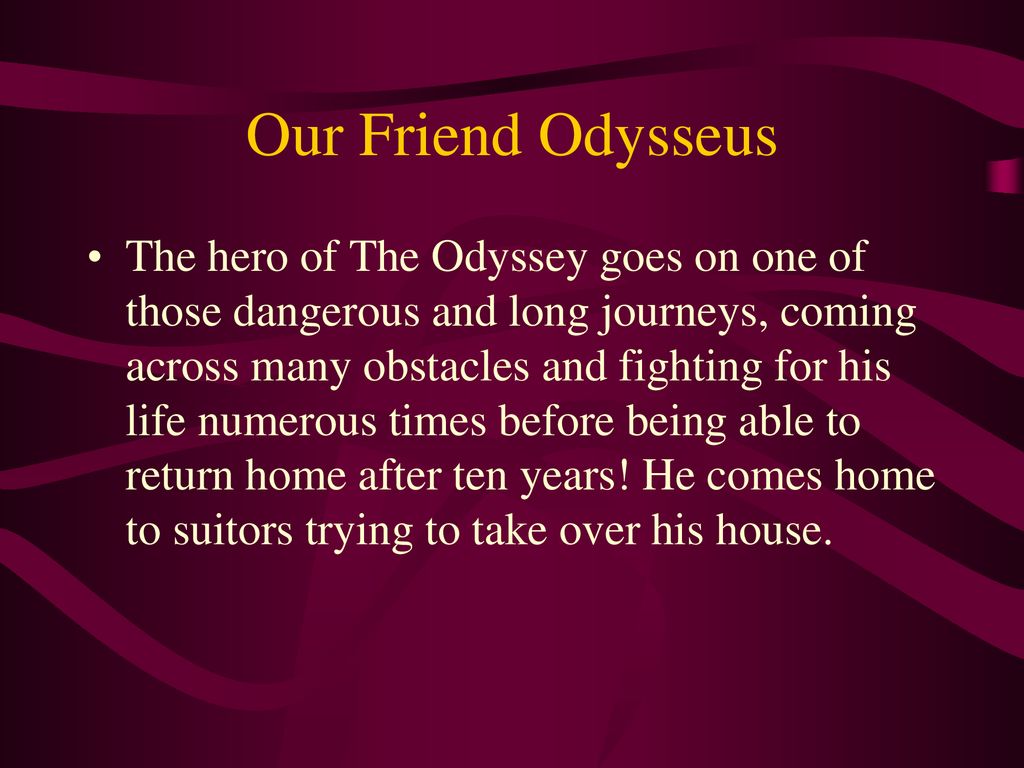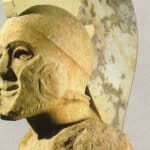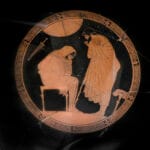Odysseus’s journey home wasn’t just about battling mythical creatures; it was a harsh lesson in human nature. While the Cyclops and Circe posed significant threats, the wounds inflicted by those Odysseus trusted cut far deeper. This article explores the various betrayals he endured, highlighting the complexities of loyalty and deceit in Homer’s Odyssey.
The Shadows of Betrayal: Disloyalty in the Odyssey
Odysseus, the hero of Homer’s Odyssey, faced numerous perils on his arduous journey back to Ithaca. But perhaps the most insidious dangers came not from monsters or gods, but from those who wore the mask of friendship. Let’s explore the various forms of betrayal Odysseus endured and what they suggest about the nature of human relationships.
The Treachery of the Crew
Odysseus’s crew, while not outright mutinous, were far from the ideal companions. Their repeated disobedience and recklessness often jeopardized the journey. Eurylochus, for instance, defied Odysseus on multiple occasions. His actions led some of the men to Circe, where they were transformed into swine. Later, on Thrinacia, his disregard for Odysseus’s explicit orders resulted in the destruction of ships and the loss of lives. These weren’t grand acts of betrayal, but rather a series of smaller transgressions that eroded Odysseus’s hope and prolonged his journey. Their behavior suggests a self-serving mentality, prioritizing their own desires over the well-being of their leader and fellow crew members.
The Usurpers at Home
Returning home after 20 years, Odysseus found his palace overrun by the suitors, men vying for Penelope’s hand and squandering his resources. Their actions were a profound violation of xenia, the sacred law of hospitality in ancient Greece. Their presence wasn’t simply disrespectful; it represented a calculated attempt to erase Odysseus and usurp his rightful place. This betrayal, arguably more painful than any physical wound, cut to the core of Odysseus’s identity and family life.
Beacons of Loyalty
Amidst the sea of deceit, there were glimmers of true loyalty. Athena, the goddess of wisdom, consistently guided and protected Odysseus. Disguised as Mentes, she offered crucial support throughout his journey. Penelope, despite the relentless pressure from the suitors, remained steadfast in her devotion to Odysseus. Her cunning and unwavering fidelity served as a beacon of hope, a testament to the enduring power of love and loyalty.
The Enigma of Polites
Some adaptations of the Odyssey introduce a character named Polites, often described as Odysseus’s close friend. However, this character is absent from Homer’s original text. This discrepancy raises intriguing questions about the evolution of the story and the different interpretations of Odysseus’s relationships. Was Polites a later addition, perhaps a literary exploration of themes of friendship and betrayal? This ambiguity adds another layer of complexity to our understanding of Odysseus’s social world.
The Scars of Deception
The repeated betrayals Odysseus endured undoubtedly left a lasting impact. They likely sharpened his instincts and fueled his caution, forcing him to become a master of disguise and deception himself. His experiences suggest that betrayal can be a transformative force, shaping one’s character and worldview in profound ways. While the Odyssey doesn’t explicitly delve into Odysseus’s inner thoughts, it invites us to consider the psychological toll of such experiences.
| Betrayal Type | Perpetrator(s) | Impact on Odysseus |
|---|---|---|
| Disobedience & Recklessness | Eurylochus, Crewmen | Loss of men, ships, delayed return |
| Usurpation & Disrespect | The Suitors | Emotional distress, threat to family, delayed homecoming |
| Uncertain Allegiance | Polites (in some adaptations) | Raises questions about loyalty, textual interpretation |
The story of Odysseus isn’t just an adventure; it’s a reflection on the human condition. The betrayals he faced highlight the fragility of trust and the challenges of navigating complex relationships. By exploring these “false friends,” we gain a deeper understanding of Odysseus’s journey and the timeless themes of loyalty, deceit, and the search for true connection.
Who Was Odysseus’ Friend?
Delve into the chilling myths surrounding the goddess of the underworld shuddering and uncover the secrets of her shadowy realm.
Homer’s Odyssey throws us right into the mix of Odysseus’s struggles against gods and monsters. But what about the human connections? Who stood by him? Who failed him? Let’s uncover the complexities of friendship in this epic poem.
The Mysterious Polites
Homer names Polites as Odysseus’s closest companion. However, Polites appears only fleetingly in the Odyssey. This scarcity raises questions about their bond. What shared experiences shaped their friendship? Why does the epic remain so silent on this seemingly crucial relationship? The ambiguity surrounding Polites deepens the mystery, leaving us to speculate about the true nature of their connection. Did Polites die by Scylla’s wrath, or did he share the fate of other crewmen lost to Zeus’s lightning bolt? The text doesn’t tell us, adding another layer of enigma.
Diomedes: A Bond Forged in War
The Odyssey, though centered on Odysseus’s trials, reveals moments of genuine camaraderie. Diomedes, a fellow warrior, emerges as a dependable figure, particularly during their shared adventure to Lemnos. This perilous mission, to retrieve Philoctetes and his bow, crucial for the Greeks’ victory at Troy, forged a lasting bond between them. Even though not explored with the same emotional depth as the Polites enigma, the relationship with Diomedes highlights another aspect of companionship in Odysseus’s life. It suggests that Odysseus valued different kinds of bonds, some forged in shared danger, others perhaps more personal and intimate.
Beyond Homer: The Hero of Temesa
Alternate traditions offer additional glimpses into Odysseus’s circle. The folktale of the “Hero of Temesa” features a member of Odysseus’s crew who plays a much larger part than anyone mentioned in the epic poem itself. This character is sometimes identified as Polites, other times not. This alternate narrative presents an intriguing possibility: perhaps it represents a more complete version of Polites, whose story is greatly condensed in Homer’s epic. Or maybe it’s a totally unrelated account of another companion. This alternate narrative demonstrates the richness of the oral traditions around Odysseus.
The Silence on Friendships
The Odyssey portrays Odysseus’s love for his family vividly, his longing for Penelope and reunion with Telemachus being central themes. Yet, his friendships remain largely unexplored. Was this a reflection of differing cultural values in Ancient Greece, placing family bonds above all else? Or does this silence underscore a deeper loneliness, suggesting Odysseus was further isolated on his harsh journey home through the loss of his companions? The lack of detail creates a contrast with the other intense relationships in his life.
| Potential Friend | Relationship with Odysseus | Significance |
|---|---|---|
| Polites | Described as his closest comrade, details scarce | Raises questions about their bond and his minimal presence |
| Diomedes | Fellow warrior, shared perilous mission | Demonstrates a strong bond forged in war |
| Hero of Temesa | Crew member from a separate folktale | Suggests other narratives exist, offering alternative perspectives |
Our understanding of these ancient stories is constantly evolving. Scholars continue to debate the meaning and implications surrounding characters such as Polites and the broader role of friendship in The Odyssey. The more we explore these figures, the richer our appreciation of Odysseus’s journey becomes. Who truly stood by Odysseus and what became of them remains an open question for continued scholarly investigation.
What False Name Did Odysseus Identify Himself By?
Explore the whimsical tale of Don Quixote fighting windmills and his fantastical adventures.
Odysseus, king of Ithaca, was renowned for his cunning and strategic mind. One of his most famous acts of deception involves the Cyclops Polyphemus. Trapped in the monster’s cave, Odysseus needed a plan – and fast. He knew brute force wouldn’t work against this one-eyed giant.
Odysseus plied Polyphemus with strong wine, a gift that quickly intoxicated the Cyclops. As the monster slumbered, Odysseus and his remaining crew blinded him with a sharpened stake. The cave echoed with Polyphemus’s roars of pain and rage, alerting the other Cyclopes.
When they inquired about the commotion, Polyphemus, following Odysseus’s instructions, bellowed that “Nobody” was harming him. Taking his words literally, the other Cyclopes dismissed his plight, leaving him to suffer alone. This clever wordplay, “Nobody” (or “Outis” in Greek), was a stroke of genius.
To escape, Odysseus and his men clung to the undersides of Polyphemus’s sheep as they were let out to graze. It was a daring plan, but it worked. They slipped past the blind Cyclops and back to their ship.
So, what false name did Odysseus use? He called himself “Nobody”. This seemingly simple lie saved him and his crew from certain death.
But this wasn’t Odysseus’s only foray into deception. Upon returning to Ithaca, still facing threats, he disguised himself as a beggar. This allowed him to assess the situation in his palace, which had been overrun by the suitors vying for Penelope’s hand. This beggar disguise proved crucial for his eventual triumph, offering him the time and information he needed for a strategic reclaiming of his throne.
The use of assumed identities is a recurring theme in the Odyssey. These disguises weren’t just survival tactics; they likely also symbolize Odysseus’s journey of self-discovery. Some scholars suggest they represent his struggle to reclaim his true identity after years of hardship and wandering. There is ongoing research into the psychological and symbolic importance of Odysseus’s many disguises.
Odysseus’s story prompts us to consider the complexities of identity and the lengths we might go to protect ourselves and those we love. Was his deceit justified given the extraordinary circumstances? This question continues to resonate with readers, sparking discussions about morality, survival, and the nature of heroism itself.
Who Does Odysseus Pretend to Be in Book 14?
After two decades of war and wandering, Odysseus finally returns to Ithaca. But instead of a triumphant homecoming, he adopts a disguise, entering his kingdom as a humble beggar. This strategic decision allows him to observe the changes in his homeland and the behavior of the suitors vying for his wife’s hand. In Book 14 of The Odyssey, we see this disguise in action.
Odysseus doesn’t simply claim to be a beggar; he crafts a detailed false identity. He tells Eumaeus, his loyal swineherd, that he is from Crete, the son of a wealthy man named Castor, but born to a concubine. This specific detail adds a layer of complexity to his fabricated persona. The choice of Crete may be due to its distance from Ithaca, making it difficult to verify his story.
Eumaeus, demonstrating the Greek concept of xenia (hospitality), welcomes the apparent beggar into his hut, offering food and shelter. Unaware of his guest’s true identity, Eumaeus unknowingly provides Odysseus with valuable insights into the situation in his palace and the arrogance of the suitors. This encounter is a powerful testament to Eumaeus’s loyalty and provides a stark contrast to the suitors’ behavior.
Maintaining this elaborate ruse likely took a toll on Odysseus. It must have been a challenge to suppress his true identity and play the role of a lowly beggar. Some scholars see the choice of Crete as symbolically relevant, potentially referencing the island’s mythological association with labyrinths and complex social structures. The disguise itself can be viewed as a metaphorical labyrinth, representing the intricate web of lies Odysseus creates to achieve his goals. There is debate about whether Odysseus enjoyed the challenge of deception, viewing it as another test of his cunning, or was burdened by its emotional weight.
Odysseus’s interaction with Eumaeus in Book 14 is more than just a clever plot device. It highlights the themes of loyalty, hospitality, and the challenges of maintaining one’s identity in the face of adversity. It foreshadows the eventual confrontation with the suitors and Odysseus’s ultimate reclaiming of his rightful place. The beggar disguise is a crucial element in his grand strategy, allowing him to reclaim everything he has lost.
- China II Review: Delicious Food & Speedy Service - April 17, 2025
- Understand Virginia’s Flag: History & Debate - April 17, 2025
- Explore Long Island’s Map: Unique Regions & Insights - April 17, 2025

















1 thought on “The False Faces of Friendship: Betrayal and Deception in Odysseus’s Journey”
Comments are closed.